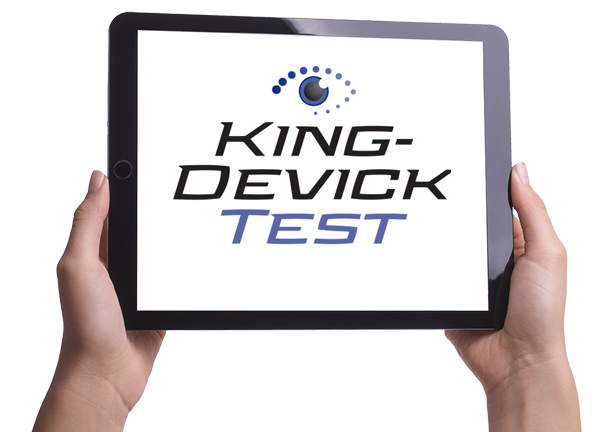What is the King-Devick Test?
The King-Devick Test is a two-minute rapid number naming assessment in which an individual quickly reads aloud single digit numbers and evaluates impairments of eye movements, attention and language function (Concussion, The King-Devick test of rapid number naming for concussion detection: meta-analysis and systematic review of the literature, 2016).*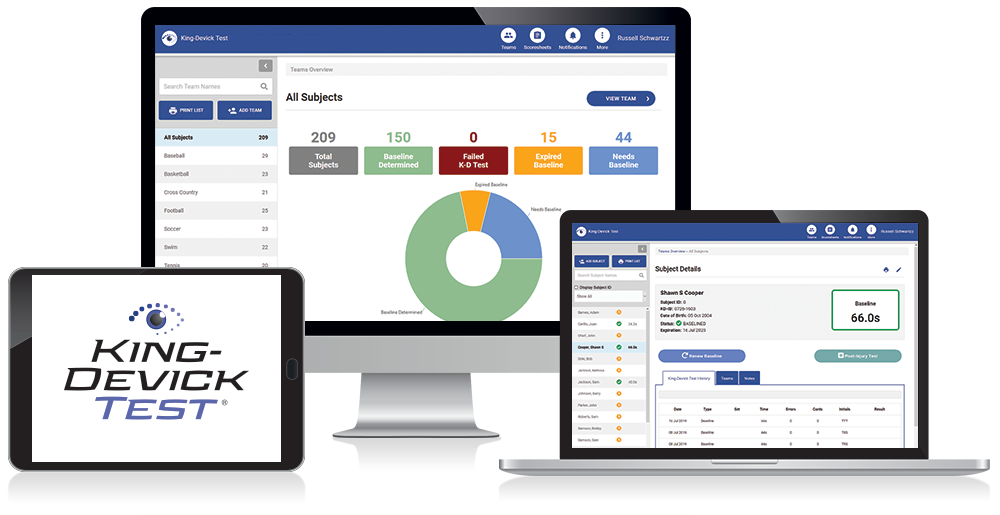
Eye Movements and Concussion Testing
Peer-reviewed research has shown that adding a vision-based performance measure to cognitive and balance testing enhances the detection capabilities of current sideline concussion assessment (Journal of Neuro-Ophthalmology, Adding Vision to Concussion Testing: A Prospective Study of Sideline Testing in Youth and Collegiate Athletes 2015).* The K-D Test is a recommended component of the Concussion Check Protocol.High Sensitivity & Specificity
A recent meta-analysis found King-Devick Test to be both sensitive (86%) and specific (90%) for the detection of concussion. Any worsening of King-Devick Test from baseline indicated a five-times greater likelihood of concussion (Concussion, The King-Devick test of rapid number naming for concussion detection: meta-analysis and systematic review of the literature, 2016).**King-Devick Test has FDA pre-amendment certification for the assessment of saccadic eye movements. K-D Balance is FDA 510(k) cleared as a balance assessment tool. Some off-label uses of devices described in the peer-reviewed scientific research have not been cleared by FDA.
Bring King-Devick Test to your school, club, team or home today!
(Min. order 3 athletes)
$20.00
| Number of Athletes | Quantity Discount | Annual Cost |
|---|---|---|
| 1-99 | –– | $20 (USD) (per athlete) |
| 100-199 | 25% Off | $15 (USD) (per athlete) |
| 200+ | 50% Off | $10 (USD) (per athlete) |
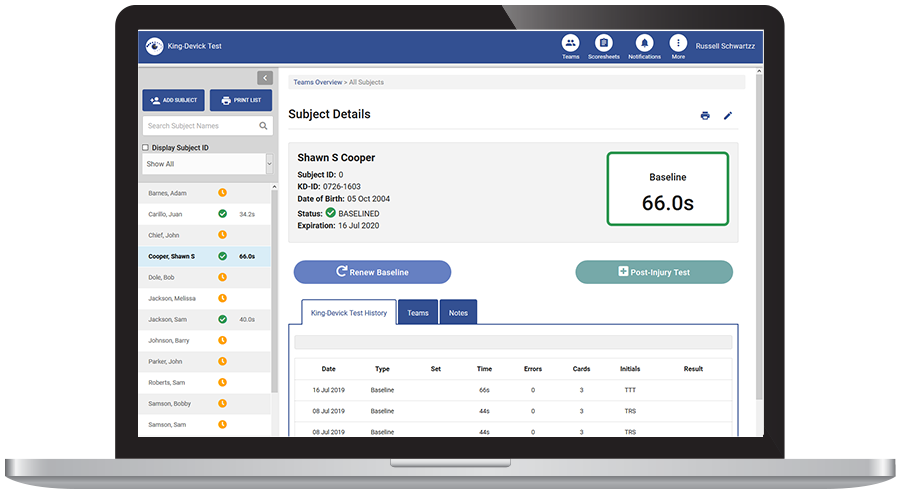
Program Features
- Secure, protected cloud-based system
- Compatible with 9.7” iPads, 10.1” Android tablets (minimum requirements), or computer
- Unlimited testing per subject
- Includes baseline testing, sideline assessment and monitoring
- Use iPads or Android tablets when Wi-Fi is not available
- Email reports to physicians or parents
Ahead
of the Game
Watch how King-Devick Test is used by University of Miami as part of a comprehensive concussion protocol.
Evidence-Based Solutions
Our Clients Include...
Concussion Facts
Concussion Symptoms may not be apparent for hours or days
Studies Show
85% of concussions may go undiagnosed
The majority of concussions occur without loss of consciousness
How K-D Test Works
At the beginning of the season, establish a K-D Baseline on your iPad or Android tablet. Use the King-Devick Test App to assess your athlete right from the sidelines or at home. According to peer-reviewed studies, a worse sideline test indicates worsening saccadic eye movement function, which can be a common symptom of concussion (Concussion, The King-Devick test of rapid number naming for concussion detection: meta-analysis and systematic review of the literature, 2016).*
K-D Test can
be administered by:
- Coaches
- Parents
- Athletic Trainers
Step 1
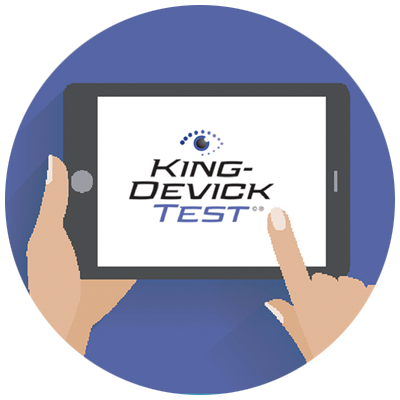
ESTABLISH A K-D BASELINE
Open the K-D Test App and follow the instructions to establish a K-D Baseline.Step 2
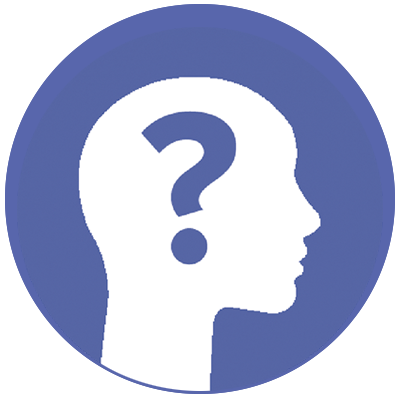
CONDUCT SIDELINE TEST
As part of your sideline screening protocol, open the K-D Test App to conduct a sideline assessment.Step 3
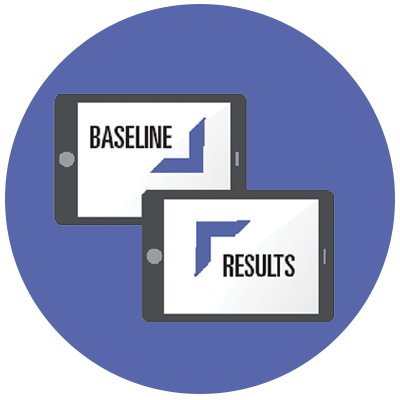
TAKE ACTION
The K-D Test App will compare the sideline results to the K-D Baseline and report any worsening in saccadic function, which can be a common symptom of concussion.*King-Devick Test iPad App Tutorial Video
King-Devick Test Android App Tutorial Video
King-Devick Test Web App Tutorial Video
Important Safety Information
- King-Devick Test is for assessment purposes only and any suspicion or indication of concussion should be evaluated by a licensed professional.
- Research has shown the King-Devick Test to be additive to other sideline concussion assessments such as balance and cognition (Neurology Clinical Practice, Vision Testing is Additive to the Sideline Assessment of Sports-Related Concussion, 2014).
- King-Devick Test not intended for subjects younger than 5 years old (Journal of Neuro-Ophthalmology, Adding Vision to Concussion Testing: A Prospective Study of Sideline Testing in Youth and Collegiate Athletes, 2015).
- According to the CDC, if any of the following concussion symptoms are present, call 911 or take the athlete to the emergency room: one pupil larger than the other, drowsiness or inability to wake up, worsening headache, slurred speech, weakness, numbness, decreased coordination, repeated vomiting, seizures, convulsions, increased confusion or irritability, neck pain, or loss of consciousness (Read more).

